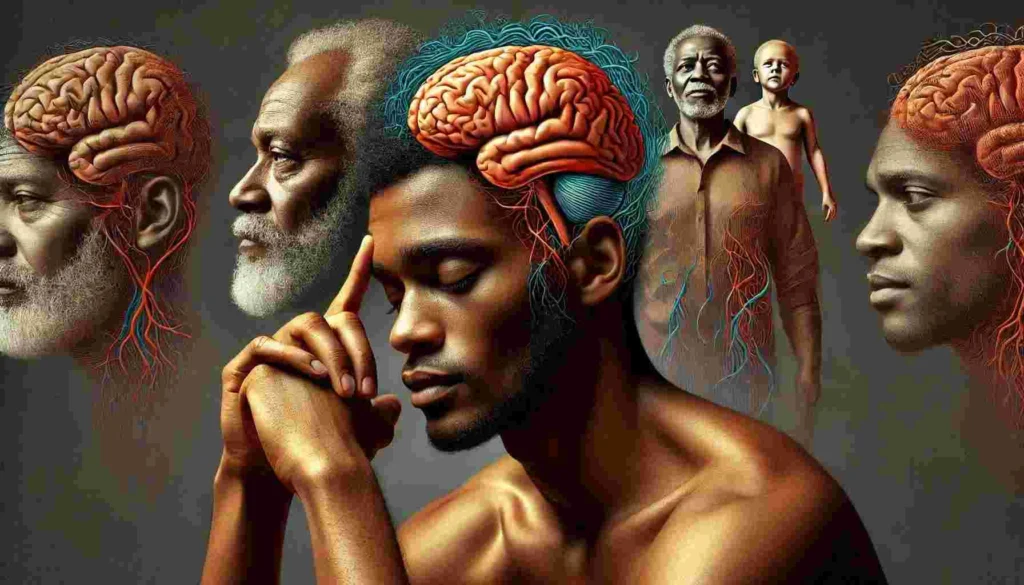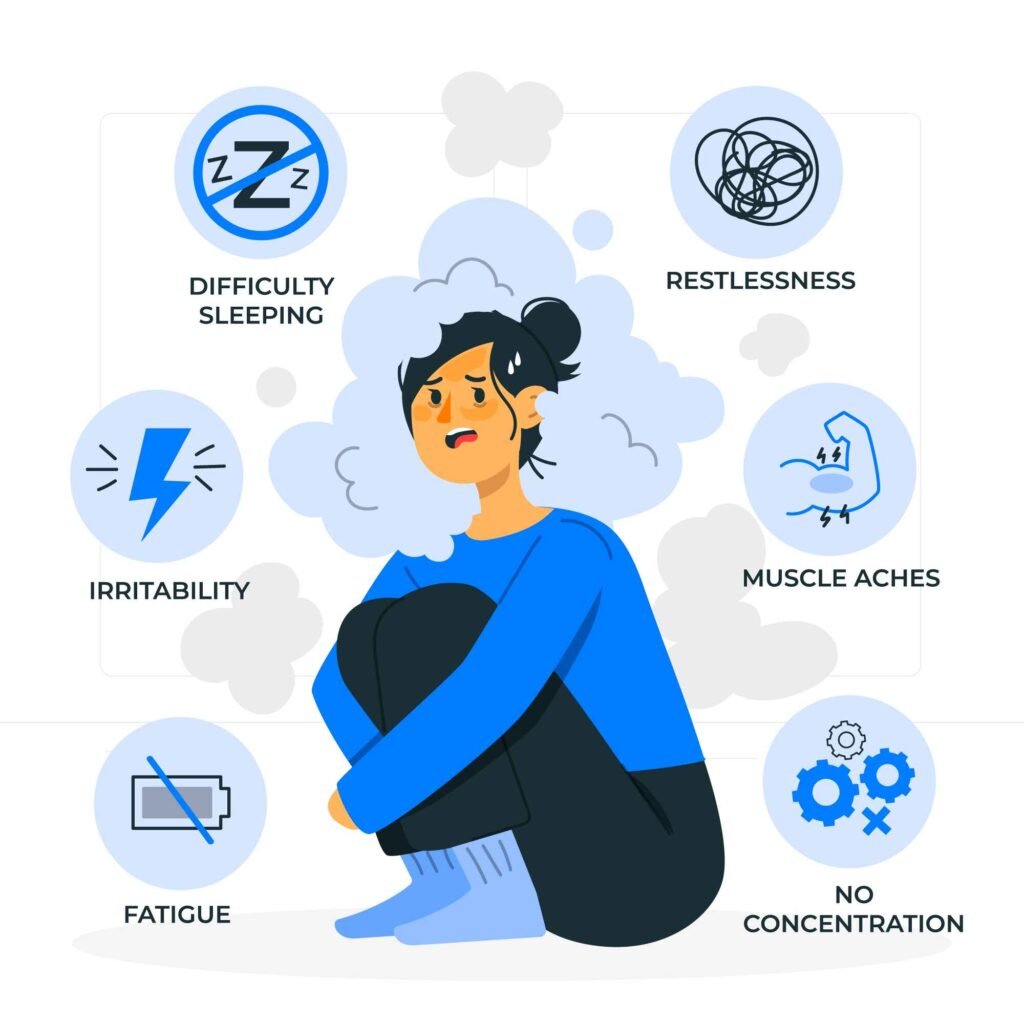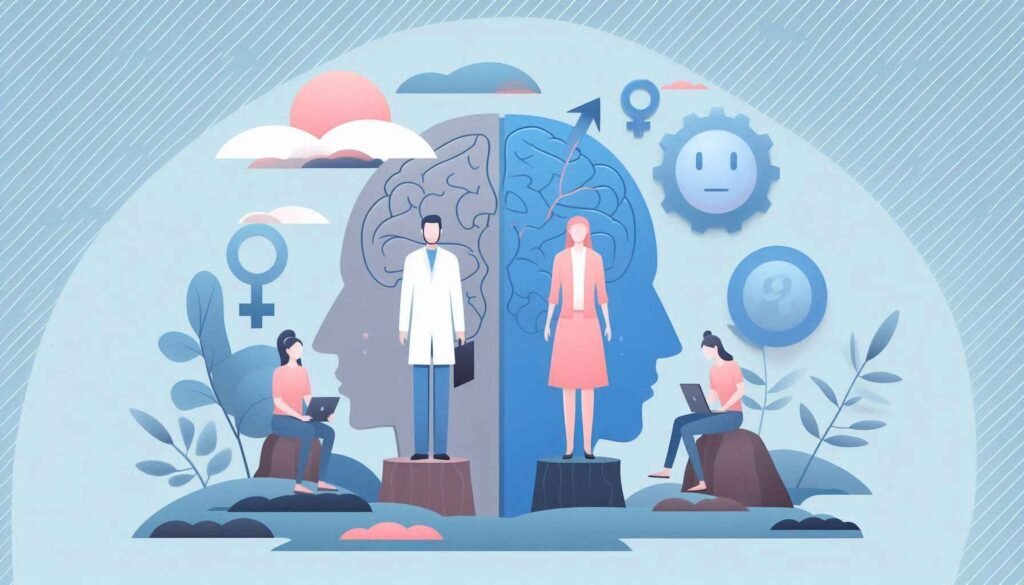
Men’s Mental Health Across the Lifespan: Challenges from Adolescence to Older Age
Introduction
Men’s mental health is a crucial yet often overlooked aspect of overall well-being. While societal expectations and stigmas around masculinity can hinder open discussions, understanding the unique mental health challenges men face across different life stages is essential. From adolescence to older age, mental health needs evolve, influenced by biological, social, and environmental factors. This article delves into the challenges men face at various stages of life and provides insights for better mental health awareness and care.
The Foundation Years: Adolescence (12–18 Years)
1. The Onset of Mental Health Issues
Adolescence marks a time of significant change. Hormonal shifts, academic pressures, and the desire for social acceptance create a challenging environment. During these years, boys are at increased risk of developing mental health conditions such as depression, anxiety, and eating disorders.
- Key stressors: Peer pressure, academic expectations, and social media.
- Impact of stigma: Young men often hesitate to express emotions, fearing judgment.
2. The Role of Identity Formation
Adolescents grapple with questions of identity, sexuality, and independence.
- Gender expectations: Societal norms encourage young men to suppress vulnerability.
- Emotional repression: This can lead to feelings of isolation and frustration, increasing the risk of mental health problems.
3. The Digital Era’s Influence
The rise of social media has introduced new challenges.
- Comparisons and cyberbullying: Constant online comparisons and negative interactions can harm self-esteem.
- Overload of information: Adolescents often face difficulty distinguishing reliable advice from harmful content online.
4. Recognizing and Addressing Warning Signs
- Red flags: Withdrawal from friends and family, declining academic performance, and changes in sleep or eating habits.
- Interventions: Schools and families can promote mental health education and provide access to counseling services.
Young Adulthood: The Transition Years (19–35 Years)
1. Balancing Responsibilities and Aspirations
Young adulthood is characterized by significant life transitions, including higher education, entering the workforce, and forming relationships.
- Workplace stress: Men in this stage often face immense pressure to succeed professionally.
- Relationship dynamics: Building healthy romantic and social connections can be challenging.
2. Mental Health Challenges Unique to Young Men
- Risk of substance abuse: Men in this age group are at higher risk of using substances as a coping mechanism for stress or anxiety.
- Increased rates of suicide: Young men often experience a higher incidence of suicide due to untreated mental health issues and societal pressure to appear “strong.”
3. Impact of Societal Expectations
- Toxic masculinity: The belief that men must always be self-reliant and unemotional prevents many from seeking help.
- The “provider” role: Financial and career-related stress exacerbates feelings of inadequacy and anxiety.
4. The Importance of Self-Care
- Building resilience: Regular exercise, mindfulness practices, and maintaining a work-life balance can improve mental health.
- Seeking professional help: Counseling or therapy should be normalized and encouraged during this phase of life.
The Midlife Years: Middle Age (36–55 Years)
1. The Pressure to Succeed
For men in their middle years, societal expectations can feel overwhelming. The pressure to excel in their careers, support their families, and maintain a certain standard of living often leads to chronic stress.
- Career burnout: Long working hours and job instability can erode mental well-being.
- Financial concerns: Rising expenses, mortgages, and education costs for children contribute to anxiety.
Men in this stage may feel trapped between responsibilities and personal aspirations, often sidelining their mental health.
2. The Silent Crisis: Midlife Depression
Midlife depression is a prevalent yet under-discussed issue among men. It often manifests in subtle ways:
- Physical symptoms: Fatigue, body aches, and changes in appetite.
- Behavioral changes: Irritability, increased alcohol consumption, or withdrawal from family and friends.
These symptoms can be overlooked or dismissed as “just part of life,” leading to untreated mental health issues.
3. The Impact of Relationships
As men navigate middle age, their relationships—whether romantic, familial, or social—play a critical role in their mental health.
- Marital strain: Challenges such as miscommunication, financial stress, and differing life goals can lead to emotional distress.
- Parenting stress: Balancing work and parenting duties often results in feelings of inadequacy or guilt.
4. Health Concerns and Their Effect on Mental Health
Physical health concerns, such as weight gain, hypertension, or chronic illnesses, often emerge during middle age.
- Men’s reluctance to seek help: A cultural norm of ignoring health symptoms exacerbates mental and physical issues.
- Link between physical and mental health: Chronic conditions like diabetes or heart disease can lead to anxiety and depression.
Strategies for Middle-Aged Men to Prioritize Mental Health
1. Seeking Support
- Therapy and counseling: A professional can provide tools to manage stress, anxiety, and relationship challenges.
- Peer groups: Engaging with other men facing similar challenges can create a sense of camaraderie and understanding.
2. Maintaining a Healthy Lifestyle
- Physical activity: Regular exercise not only boosts physical health but also releases endorphins to improve mood.
- Balanced diet: Nutrient-rich foods can have a positive impact on energy levels and emotional stability.
3. Addressing the Stigma
Breaking the stigma surrounding men’s mental health is essential for long-term well-being.
- Encourage open conversations: Men must feel comfortable discussing their struggles without fear of judgment.
- Education and awareness: Promoting mental health resources can empower men to seek help.
The Golden Years: Older Age (56 Years and Beyond)
1. Retirement and Its Challenges
Retirement, while often viewed as a period of relaxation, can also trigger feelings of loss and uncertainty.
- Loss of identity: Many men associate their self-worth with their professional roles, leading to a sense of purposelessness.
- Financial insecurity: Adjusting to a fixed income can cause anxiety and stress.
2. Coping with Loneliness and Isolation
As men age, their social circles often shrink due to factors such as retirement, relocation, or the loss of loved ones.
- Impact of loneliness: Social isolation can lead to depression, anxiety, and cognitive decline.
- Barriers to socialization: Physical limitations or a reluctance to join new activities can worsen the issue.
3. Physical Health and Mental Well-Being
Aging is accompanied by an increased risk of chronic illnesses and physical disabilities.
- Impact on mental health: Conditions like arthritis, vision or hearing loss, and mobility issues often lead to frustration and sadness.
- Caregiver stress: Older men caring for ailing spouses or family members may neglect their own needs, resulting in burnout.
4. The Risk of Undiagnosed Mental Health Issues
Mental health challenges in older men are frequently underdiagnosed due to a tendency to attribute symptoms to aging.
- Common issues: Depression, anxiety, and even suicidal thoughts are prevalent among older men but are often ignored.
- Lack of resources: Limited access to mental health services for seniors can exacerbate the problem.
Strategies for Maintaining Mental Health in Older Age
1. Staying Connected
- Foster relationships: Regular communication with family and friends can reduce feelings of loneliness.
- Join community activities: Engaging in hobbies, volunteering, or joining senior groups provides a sense of purpose.
2. Prioritizing Physical Health
- Regular check-ups: Addressing health concerns early can prevent them from escalating.
- Gentle exercise: Activities like walking, yoga, or swimming improve both physical and mental well-being.
3. Seeking Professional Help
- Access to therapy: Mental health professionals specializing in geriatrics can address the unique challenges faced by older men.
- Medication management: If prescribed, medications should be carefully monitored to ensure effectiveness and reduce side effects.
Holistic Approaches to Men’s Mental Health
Mental health care requires a comprehensive approach that encompasses emotional, physical, and social well-being. In this final section, we’ll explore actionable strategies and community resources to empower men to take charge of their mental health at every stage of life.
Building Emotional Resilience
1. Normalizing Emotional Expression
Men often feel societal pressure to appear strong and unemotional. Breaking this cycle is critical to improving mental health.
- Encourage vulnerability: Openly discussing emotions with trusted friends, family members, or therapists can foster connection and healing.
- Challenge stereotypes: Campaigns and role models advocating for mental health awareness can inspire men to seek help.
2. Developing Coping Mechanisms
Learning healthy ways to manage stress can significantly improve resilience.
- Mindfulness practices: Techniques like meditation, deep breathing, and gratitude journaling can help men stay grounded.
- Time management: Prioritizing tasks and setting realistic goals reduces overwhelm and promotes balance.
3. Practicing Self-Compassion
Men often judge themselves harshly for perceived failures.
- Reframe negative thoughts: Replace self-criticism with constructive self-talk.
- Acknowledge progress: Celebrate small victories to build confidence and reduce stress.
Physical Health as a Foundation for Mental Well-Being
1. The Mind-Body Connection
Physical health and mental health are deeply intertwined. Poor physical health can exacerbate anxiety and depression, while mental health issues can lead to neglect of physical well-being.
- The power of exercise: Regular physical activity releases endorphins, reduces stress hormones, and improves overall mood.
- Balanced nutrition: A diet rich in whole grains, lean proteins, and healthy fats can positively impact brain function.
2. The Importance of Sleep
Quality sleep is essential for emotional regulation and cognitive function.
- Sleep hygiene tips: Create a calming bedtime routine, limit screen time, and maintain a consistent sleep schedule.
- Address sleep disorders: Conditions like sleep apnea or insomnia should be diagnosed and treated promptly.
3. Avoiding Harmful Habits
Substance abuse and unhealthy coping mechanisms can worsen mental health.
- Limit alcohol consumption: Excessive drinking is often used as a way to cope but can lead to dependence.
- Avoid smoking: Nicotine can increase anxiety and negatively impact long-term health.
Strengthening Social Connections
1. Building Support Networks
Social support is a critical factor in mental well-being.
- Family and friends: Strong relationships provide a safety net during tough times.
- Peer groups: Joining community organizations, hobby clubs, or support groups can combat loneliness.
2. Engaging in Community Activities
Men can benefit from being active members of their communities.
- Volunteering: Helping others fosters a sense of purpose and reduces feelings of isolation.
- Skill-building workshops: Learning new skills or hobbies promotes self-esteem and mental stimulation.
3. Addressing Relationship Challenges
Healthy relationships are foundational to mental health.
- Effective communication: Practice active listening and express needs openly.
- Conflict resolution: Seek constructive ways to address disagreements without escalating stress.
Leveraging Professional Resources
1. Therapy and Counseling
Professional mental health care can provide personalized strategies for managing challenges.
- Therapy options: Cognitive-behavioral therapy (CBT), talk therapy, and group counseling are highly effective.
- Online platforms: Teletherapy makes mental health support more accessible for men hesitant to attend in-person sessions.
2. Medication and Treatment Plans
For some men, medication may be a necessary part of mental health care.
- Consulting professionals: Psychiatrists can assess whether medication is appropriate and ensure proper management.
- Ongoing evaluation: Regular check-ins with healthcare providers ensure treatment remains effective.
3. Workplace Mental Health Initiatives
Employers are increasingly recognizing the importance of mental health support.
- Employee assistance programs: Access to counseling and stress management resources at work can be invaluable.
- Flexible policies: Workplaces that allow for mental health days or hybrid schedules reduce burnout.
Cultivating a Positive Mental Health Culture
1. Promoting Mental Health Awareness
Creating a culture where mental health is openly discussed benefits everyone.
- Public campaigns: Initiatives like Mental Health Awareness Month encourage men to prioritize their well-being.
- Education: Teaching young boys about emotional intelligence and coping skills sets the foundation for lifelong mental health.
2. Role Models and Advocates
Prominent figures who openly share their mental health struggles can inspire others.
- Celebrity advocates: Athletes, actors, and public figures breaking the silence encourage men to seek help.
- Local heroes: Community leaders can also have a powerful impact on changing attitudes.
3. Combating Stigma
Erasing stigma is essential for men to feel safe seeking help.
- Open dialogues: Create safe spaces where men can share their experiences without judgment.
- Supportive environments: Families, workplaces, and communities should actively promote mental health acceptance.



